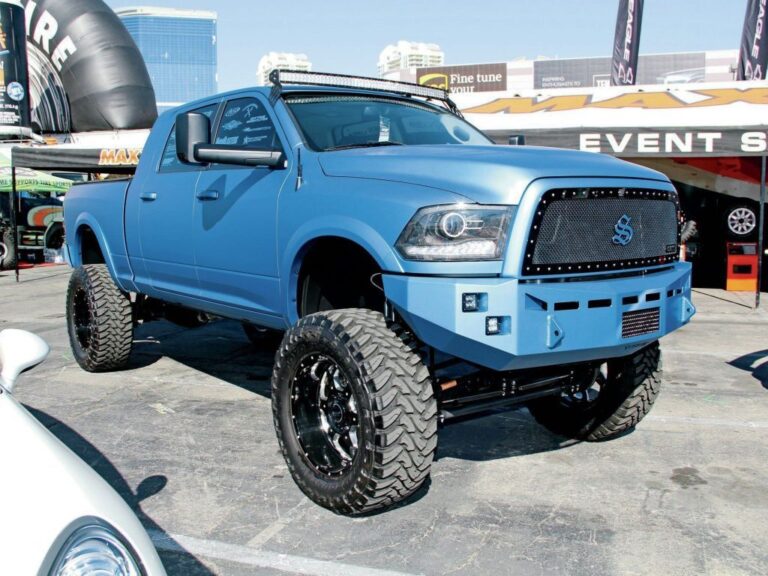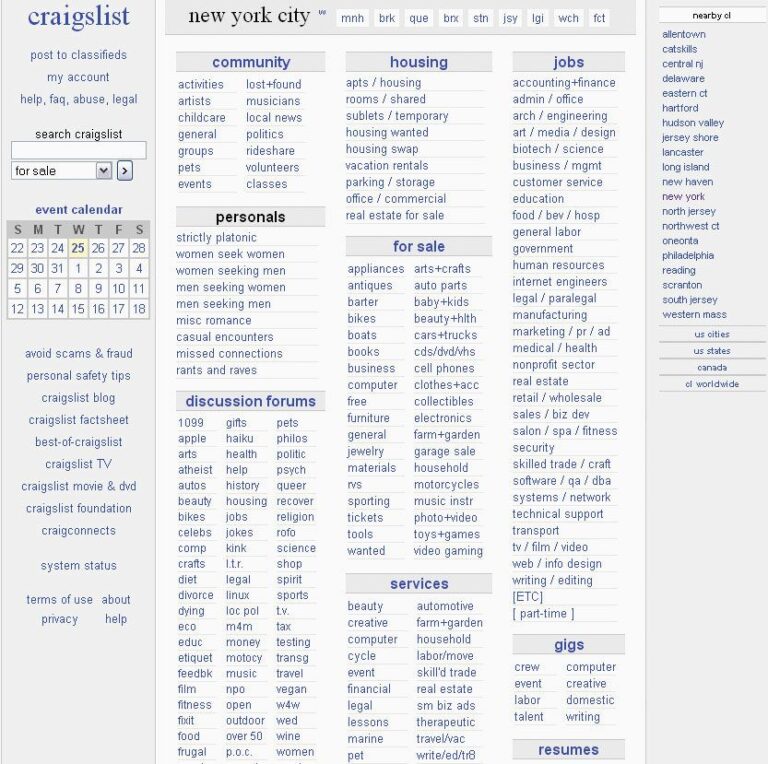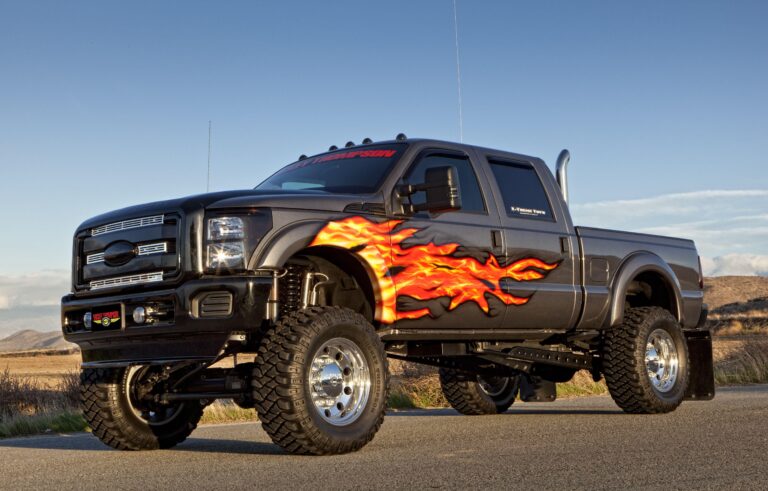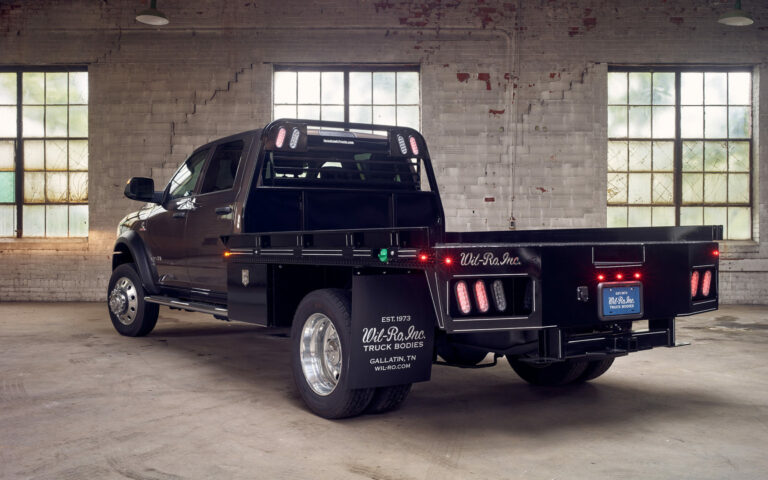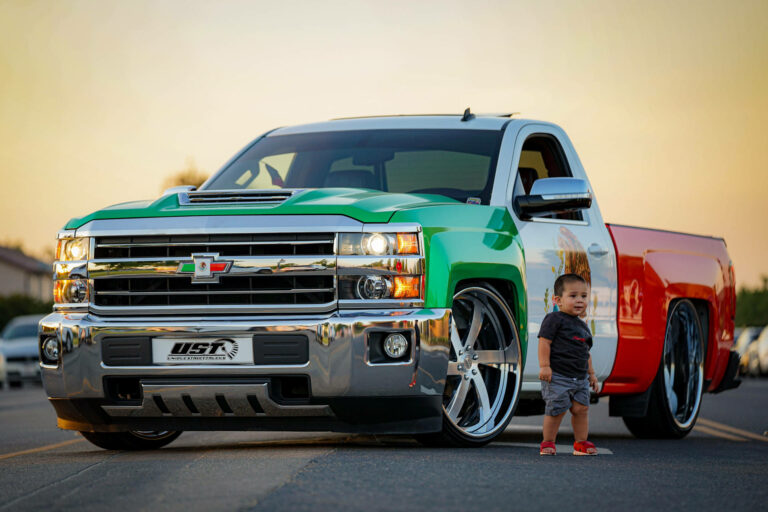Are Used U-Haul Trucks A Good Buy Right Now?
Are Used U-Haul Trucks A Good Buy Right Now? cars.truckstrend.com
The sight of a bright orange U-Haul truck is synonymous with moving, new beginnings, and often, a bit of heavy lifting. But beyond their rental purpose, these ubiquitous vehicles occasionally find their way onto the used vehicle market, often at surprisingly accessible price points. For many, the idea of owning a sturdy, high-capacity truck without the hefty new vehicle cost is incredibly appealing. But is buying a retired U-Haul truck a smart financial decision right now? This comprehensive guide delves into the pros, cons, considerations, and current market conditions to help you determine if a used U-Haul is a good buy for your needs.
The Enduring Appeal of a Retired Workhorse
Are Used U-Haul Trucks A Good Buy Right Now?
Why would someone consider buying a used U-Haul truck? The primary draw is undeniable: affordability meets utility. These vehicles are designed for heavy-duty work, built to withstand constant use and carry substantial loads. They offer a tremendous amount of cargo space for their price, making them attractive to individuals needing a large hauling capacity for personal projects, and particularly to small businesses looking for a cost-effective work vehicle. U-Haul, as a large fleet operator, also boasts of a rigorous maintenance schedule for its vehicles, suggesting a baseline level of care, despite the high mileage they typically accrue. This combination of low entry cost and high utility often makes them an enticing option for budget-conscious buyers.
A Fleet of Options: Types of U-Haul Vehicles for Sale
U-Haul sells a variety of vehicle types from its retired fleet, catering to different needs and budgets. While their inventory fluctuates, you’ll commonly find:
- Pickup Trucks: Often Ford F-150s or similar, these are typically older models used for local rentals or utility purposes. They offer standard pickup bed utility.
- Cargo Vans: Usually Ford E-Series or Transit Connects, or Nissan NV vans. These are enclosed and ideal for smaller deliveries, tools, or light hauling where weather protection is key.
- Box Trucks: This is the most common and varied category. Ranging from 10-foot "mini-movers" to 26-foot giants, these are the quintessential U-Haul vehicles. They typically feature a dedicated cargo box (often with a "Mom’s Attic" over the cab for extra space), a sturdy chassis, and sometimes a ramp for easier loading. Brands commonly include Ford (E-Series, F-Series cutaway chassis), GM (Savana/Express cutaway), and sometimes Nissan (NV series).

Each type comes with its own set of capacities, fuel efficiencies, and price points, making it crucial to match the vehicle to your specific requirements.
Where to Find Them: The U-Haul Sales Process
U-Haul operates its own dedicated sales platform for retired vehicles, which is the primary and most reliable place to find them. Their website, "U-Haul Used Trucks For Sale," allows you to browse inventory by location, vehicle type, and price.
The process typically involves:
- Online Browsing: Search for available vehicles in your area. Each listing usually includes basic specs, mileage, and a few photos.
- Contacting the Location: Once you find a truck of interest, you’ll typically contact the U-Haul center where it’s located to arrange a viewing and test drive.
- Inspection and Negotiation: This is your critical phase to thoroughly inspect the vehicle. While prices are often listed as "firm," there might be some room for negotiation, especially if you find legitimate issues.
- Purchase: If satisfied, the sale is handled directly by U-Haul. They often assist with temporary tags or provide necessary paperwork for registration.
The Buyer’s Checklist: What to Look For in a Used U-Haul
Buying any used vehicle requires diligence, but a retired fleet vehicle demands even more scrutiny. Here’s a comprehensive checklist:
- Mileage vs. Wear: Expect high mileage (150,000 to 300,000+ miles is common). Don’t let mileage alone scare you, but rather focus on how well the vehicle has been maintained despite the mileage.
- Engine and Transmission: These are the heart of the truck.
- Listen: Start the engine cold. Listen for unusual noises (knocks, ticks, loud exhaust).
- Test Drive: Check for smooth shifting (automatic), proper engagement (manual), and any slipping. Pay attention to acceleration and braking.
- Fluids: Check oil, transmission fluid, power steering fluid, and coolant for proper levels and color. Dark or burnt-smelling fluids are red flags.
- Brakes and Suspension: Critical for safely carrying heavy loads.
- Brakes: Check for sponginess, pulling, or grinding noises.
- Suspension: Look for sagging, excessive bouncing, or clunking noises over bumps.
- Tires: Inspect tire condition, tread depth, and age. Worn or mismatched tires indicate neglect or upcoming expense.
- Body and Frame: Look for significant rust, especially on the frame, suspension components, and brake lines. Inspect for major collision damage or repairs. Minor dents and scratches are common and expected.
- Interior: While not a deal-breaker, note the condition of seats, dashboard, and controls. Ensure all lights, wipers, horn, and HVAC systems work.
- Maintenance Records: U-Haul claims rigorous maintenance. While specific vehicle records might be hard to get (they often aggregate fleet data), inquire about their general maintenance practices.
- Pre-Purchase Inspection (PPI): This is paramount. Invest in a thorough inspection by an independent, trusted mechanic who specializes in trucks or commercial vehicles. They can identify hidden issues that could save you thousands down the line.
Beyond Moving: Potential Uses for a Used U-Haul
The versatility of these trucks extends far beyond moving day:
- Personal Use:
- Farm/Ranch: Hauling feed, equipment, or produce.
- Hobbies: Transporting large projects, race cars, or band equipment.
- Bulk Shopping: Ideal for large furniture, appliances, or lumber.
- Storage: A mobile storage unit for renovations or temporary needs.
- Small Business Use:
- Contractors/Tradesmen: Electricians, plumbers, landscapers, roofers can use them to transport tools and materials.
- Delivery Service: Perfect for local delivery businesses.
- Mobile Services: Food trucks (with extensive modification), mobile detailing, or repair services.
- Event Planning: Transporting decor, equipment, or rentals.
Pros and Cons of Buying a Used U-Haul
Pros:
- Affordable Price: Significantly cheaper than new commercial trucks or even comparable used trucks from other sources.
- High Cargo Capacity: Unmatched space for the price.
- Durable Build: Designed for heavy, continuous use.
- Simple Mechanics: Often use common, well-understood engines and transmissions, making repairs potentially easier and parts more accessible.
- Extensive Maintenance History (in theory): U-Haul’s fleet maintenance is generally standardized and frequent.
Cons:
- High Mileage & Hard Use: These trucks have worked hard, often driven by inexperienced renters, leading to potential wear and tear beyond what mileage alone suggests.
- Poor Fuel Economy: Large engines and heavy builds mean thirsty vehicles, impacting running costs.
- Limited Amenities: Expect basic interiors, no luxury features, and often loud cabins.
- Commercial Appearance: The iconic orange and U-Haul branding is distinctive; you’ll likely want to repaint or wrap it for personal or business branding.
- Insurance Challenges: Some insurers might view ex-commercial vehicles differently, potentially leading to higher premiums or limited options.
- Depreciation: While you buy cheap, they can depreciate quickly, though the initial low cost mitigates this somewhat.
Is Now the Right Time? Market Conditions & Factors
The "right now" aspect of buying a used U-Haul truck is influenced by several market dynamics:
- Used Vehicle Market: The overall used vehicle market has seen fluctuating prices in recent years. Supply chain issues and new car shortages drove up used car prices significantly. While prices have cooled slightly, they generally remain elevated compared to pre-pandemic levels. This can mean U-Haul trucks, while still relatively affordable, might be priced higher than they would have been five years ago.
- Fuel Prices: Currently, fuel prices are volatile. Given the notoriously poor fuel economy of these trucks, high gas or diesel prices can quickly erode any initial savings. Factor in your anticipated annual mileage and current fuel costs.
- Economic Outlook: A strong economy often means more demand for commercial vehicles. Conversely, an uncertain economy might lead to more people seeking affordable alternatives.
- U-Haul’s Fleet Turnover: U-Haul constantly cycles its fleet. Availability can depend on their current needs for new vehicles, and the age and condition of trucks they are retiring. Sometimes you’ll find a glut of certain models, other times not.
In short, while the overall used car market is still a bit elevated, U-Haul trucks often remain a comparatively good value for their utility. However, the ongoing cost of fuel is a significant factor to weigh "right now."
Important Considerations Post-Purchase
Beyond the initial purchase, several ongoing factors demand attention:
- Registration & Licensing: Depending on your state and the truck’s Gross Vehicle Weight Rating (GVWR), you might need a commercial driver’s license (CDL) or specific commercial plates, even for personal use. Research your local regulations thoroughly.
- Insurance: Obtain multiple quotes. Be upfront about the vehicle’s history as a rental truck. Some standard personal auto policies may not cover it, requiring a commercial or specialized policy.
- Fuel Economy: Realistically, expect anywhere from 8-15 miles per gallon, depending on the truck size, engine, and load. Budget accordingly.
- Maintenance Costs: While mechanics can be simple, parts for larger trucks can be expensive. Factor in regular oil changes, tire rotations, and potential major repairs.
- Appearance & Branding: If using it for business, budgeting for a new paint job, wrap, or branding elements is essential to remove the U-Haul identity.
Tips for a Successful Purchase
- Do Your Homework: Research specific models (engine types, common issues) you’re interested in.
- Set a Realistic Budget: Include not just the purchase price, but also taxes, registration, insurance, immediate repairs, and potential repaint/wrap.
- Inspect Thoroughly (and get a PPI!): Don’t skip this step. A professional inspection is your best defense against hidden problems.
- Test Drive Extensively: Drive it on highways, city streets, and ideally, up a hill. Listen, feel, and pay attention to everything.
- Negotiate (Respectfully): While prices are often firm, if you find issues during inspection, you might have leverage.
- Understand Your Needs: Don’t buy a 26-foot truck if a 15-foot will suffice. Bigger means more fuel, more maintenance, and harder parking.
Overcoming Potential Challenges
- High Mileage: Focus on maintenance history and a strong PPI. A well-maintained high-mileage truck is often better than a neglected low-mileage one.
- Finding Parts: Most U-Haul trucks use common Ford, GM, or Nissan components, making parts generally accessible at auto parts stores or dealerships.
- Insurance Hurdles: Shop around with multiple insurance providers. Be transparent about the vehicle’s past.
- Commercial Appearance: Plan for a repaint or wrap. This can transform the truck’s identity.
U-Haul Used Truck Estimated Price Ranges (Representative)
Please note: These are estimates and highly dependent on location, specific year, mileage, condition, and current market demand. Prices can vary significantly. Always verify current pricing on U-Haul’s official sales website.
| Vehicle Type | Common Model Years | Typical Mileage Range | Estimated Price Range (USD) | Key Considerations |
|---|---|---|---|---|
| Pickup Truck | 2008 – 2015 | 120,000 – 200,000+ | $4,000 – $9,000 | Less common, often older models. |
| Cargo Van | 2010 – 2018 | 150,000 – 250,000+ | $5,000 – $11,000 | Good for smaller loads, weather protection. |
| 10ft Box Truck | 2010 – 2018 | 150,000 – 250,000+ | $5,000 – $12,000 | Easy to drive, good for personal use. |
| 15ft Box Truck | 2010 – 2018 | 180,000 – 280,000+ | $7,000 – $15,000 | Popular mid-size, versatile. |
| 20ft Box Truck | 2010 – 2018 | 200,000 – 300,000+ | $9,000 – $18,000 | Significant capacity, common for business. |
| 26ft Box Truck | 2010 – 2018 | 220,000 – 350,000+ | $10,000 – $22,000+ | Largest, may require CDL for some uses/states. |
Frequently Asked Questions (FAQ)
Q: Are U-Haul trucks reliable given their high mileage?
A: They are built to be robust, and U-Haul performs regular maintenance. However, high mileage and varied drivers mean wear and tear. A pre-purchase inspection is crucial to assess individual reliability.
Q: Do used U-Haul trucks come with a warranty?
A: Typically, no. They are sold "as-is." Any issues discovered after purchase are generally the buyer’s responsibility.
Q: How many miles do used U-Haul trucks usually have?
A: Most retired trucks have significant mileage, often ranging from 150,000 to over 300,000 miles.
Q: Can I use a used U-Haul truck for personal use, or only for business?
A: You can use it for personal or business use. However, you’ll need to register and insure it appropriately for your intended purpose, which might involve commercial-grade policies or licenses depending on its size and your state’s regulations.
Q: Is financing available for used U-Haul trucks?
A: U-Haul does not typically offer direct financing. You would need to secure a personal loan, business loan, or line of credit from a bank or credit union.
Q: Are parts hard to find for U-Haul trucks?
A: No, generally not. U-Haul primarily uses common chassis and powertrains from Ford, GM, and Nissan, meaning parts are widely available at auto parts stores and dealerships.
Q: What’s the fuel economy like for these trucks?
A: Poor. Expect single-digit to low-teens miles per gallon (8-15 MPG) depending on the truck size, engine type, and driving conditions. Factor this into your budget.
Conclusion
So, are used U-Haul trucks a good buy right now? The answer is a qualified "yes" – if you approach the purchase with a clear understanding of what you’re getting into. For individuals or small businesses seeking an incredibly affordable, high-capacity utility vehicle, a used U-Haul can represent exceptional value. The current market, while still somewhat elevated for used vehicles, continues to offer these trucks at a fraction of the cost of new alternatives.
However, the "good buy" hinges on diligent research, a thorough pre-purchase inspection by a trusted mechanic, and a realistic assessment of the ongoing costs of ownership, especially fuel and insurance. These are not low-maintenance luxury vehicles; they are sturdy, utilitarian workhorses. If you’re prepared for their quirks, their commercial appearance, and their thirst for fuel, a retired U-Haul truck can indeed be a smart, practical, and highly functional investment for your personal projects or business needs.
